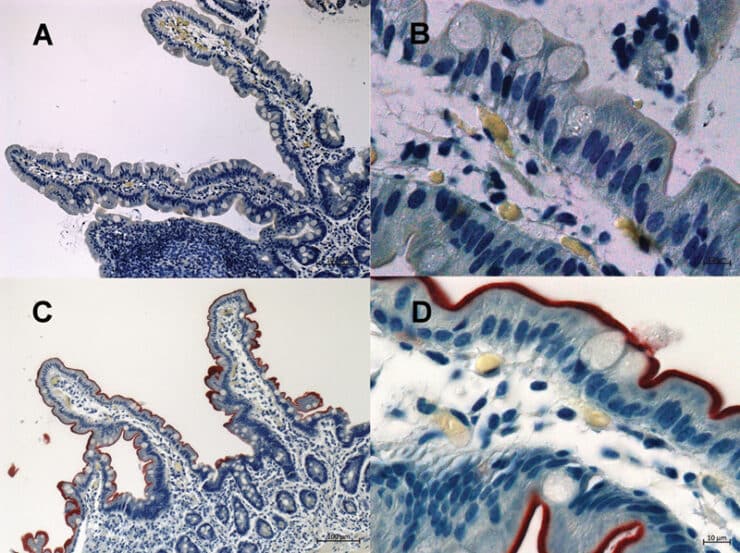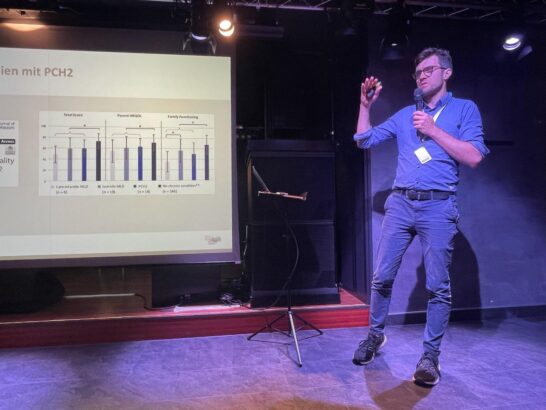Summary
Typical gastrointestinal symptoms in patients with PCH2A (feeding difficulties, reflux, vomiting, bloating, constipation, defecation disorders, dysmotility, cramping abdominal pain, restlessness) are recorded in a standardized manner and compared with a control group (children and adolescents with other types of severe neurological impairment). In addition, biopsies taken from the small intestine showed that a certain molecule (called intestinal alkaline phosphatase) on the surface of the intestinal cells does not function properly in patients with PCH2A. It currently remains unclear how this defect is linked to the genetic cause of PCH2A and whether or how it affects patients.
Background Information
Based on the accounts of parents and the Natural History Study, we know that gastrointestinal symptoms have a significant impact on the quality of life of affected children and their families. However, it is still uncertain which symptoms are specific to PCH2A and which are also associated with other severe neurological impairments in childhood. This distinction is important when it comes to disease-specific treatment options.
Objectives of the Research Project
- Standardized definition of typical gastrointestinal symptoms in PCH2A
- Comparison of symptoms in patients with PCH2A with other children and adolescents with severe neurological impairment (questionnaire, symptom log)
- Evaluation of standardized diagnostic procedures (e.g. with regard to intestinal motility, i.e. the orderly transport of food in the intestine)
- Collection and follow-up examination of biopsies from the small intestine via the HILDA biobank
Outlook
By comparing gastrointestinal symptoms in patients with PCH2A with other children and adolescents with neurological disorders, we can determine which symptoms are disease-specific. This allows us to identify possible clinical endpoints for future therapy studies. It may also provide new clues about the cause of the symptoms: whether it lies in the intestinal nerve plexus or rather within the intestinal cells themselves.
Conclusion
Gastrointestinal symptoms are a major impairment for many patients with PCH2A – identifying them more accurately and in more detail may open up new treatment options in the future!


